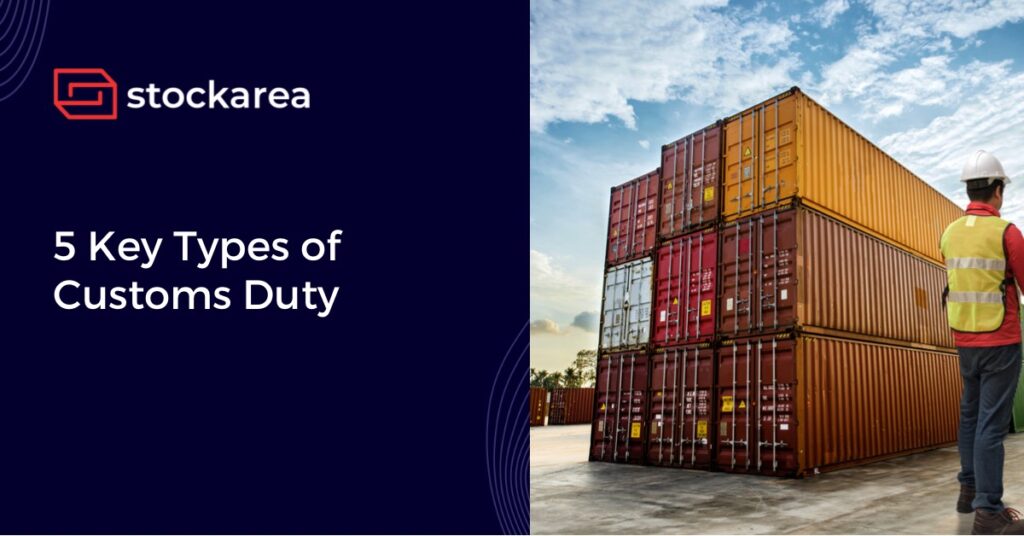Customs duties are charged on goods when it travels across international borders. Customs duties are assessed by special agencies and bodies established by local governments to safeguard local industries, economies, and companies. Different products, as well as different countries of origin, may be subject to varying customs duties. Each good is assigned a predetermined duty rate based on a range of factors, including the site of acquisition, the manufacture location, and the commodity’s composition. Consider the following key types of customs duty.
1. Basic Customs Duty
Basic customs duty refers to the tax levied on the value of the items at a fixed rate. A basic customs import duty is a duty that is placed on imported products. To determine the basic tariff that an importer owes on their goods, they must use the Harmonized Tariff Schedule to classify their imports. Importers are accountable for classifying their items accurately.
2. Countervailing Duty
Countervailing Duties (CVDs) are tariffs imposed on imported commodities to compensate for subsidies provided to producers of these goods in the exporting country. CVDs are intended to level the playing field between domestic producers of a product and foreign producers who can afford to sell it at a cheaper price due to government subsidies. CVDs are special measures designed to offset the adverse effects of a country’s subsidies on the production of a good on the same industry in another country where the production of that good is not subsidized.
3. Protective Duty
Protective tariffs are those that are established to safeguard a domestic industry. They seek to increase the cost of imported items relative to domestically produced equivalents, hence increasing sales of domestically made goods and thereby helping local business. Additionally, protective tariffs are applied to increase government revenue or to curb an undesired behavior (sin tax). While a tariff can protect domestic business while also generating income for the government, the objectives of protection and revenue maximization need distinct tariff rates, implying a trade-off between the two objectives.
4. Anti-Dumping Duty
Anti-Dumping Duty is levied to prevent multinational firms from flooding the domestic market with low-priced exporting goods. Such dumping can have a devastating effect on local industries. Dumping may be done with the goal of selling imported products at a discount to their regular worth in order to acquire an unfair advantage or to liquidate excess inventory. Anti-dumping duties were established to safeguard domestic businesses and to counteract international price discrimination, colloquially referred to as dumping.
5. Safeguard Duty
A safeguard duty is a duty levied on the import of commodities that are already made in a country but have a high cost relative to the import price. It is a tax placed by the government on goods to protect manufacturers from being harmed by the importation of cheaper goods from other countries. It contributes to the establishment of a level playing field for manufacturers and importers.
Related posts
- Top 25 Side Business Ideas In India For Extra Income
- Beginners Guide To Sell On Amazon In 2024
- What Is Customs Duty?
- Types Of Customs Duty In India
- 10 Best Cold Storage Companies In India
- Top 10 Air Freight Forwarders In India
- Top 10 Ocean Freight Forwarders In India
- 6 Effective Ways To Grow Your Logistics Business
- CIF vs FOB: 6 Key Differences
- Pallets In Logistics: A Comprehensive Guide
- 10 Types Of Pallets In Warehousing
